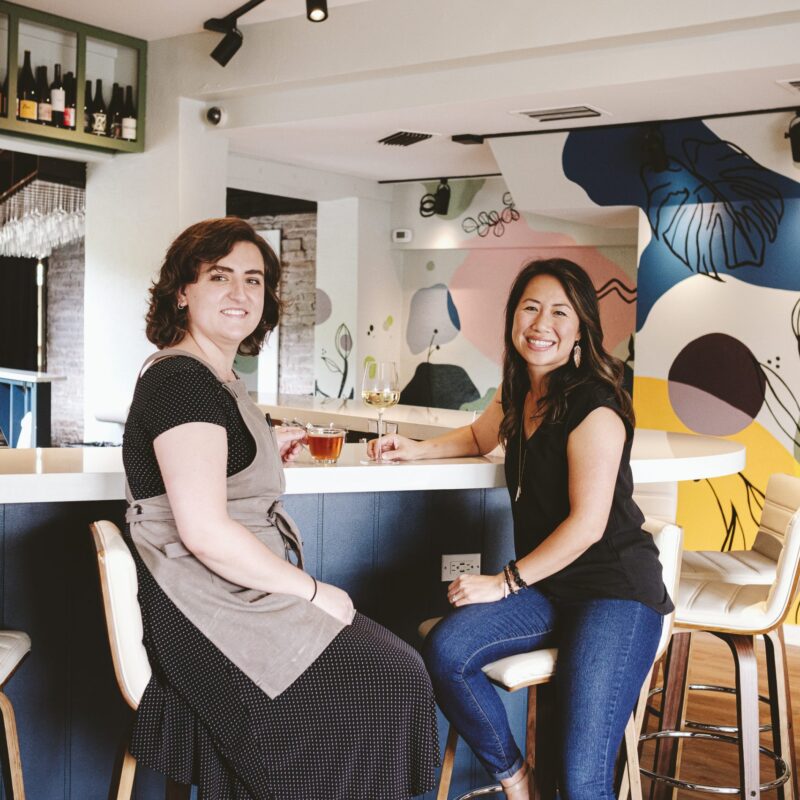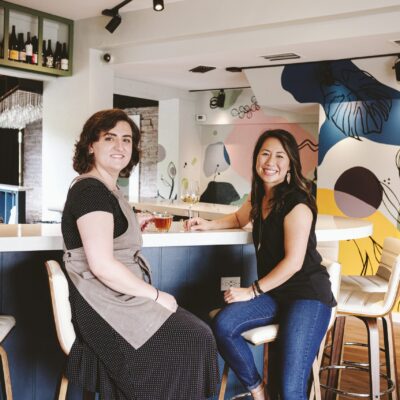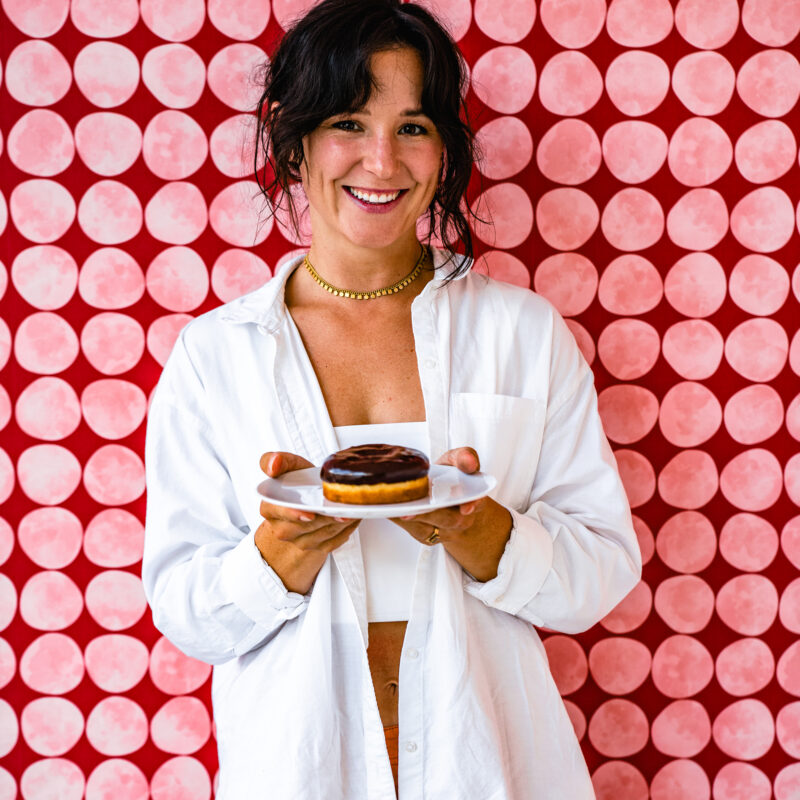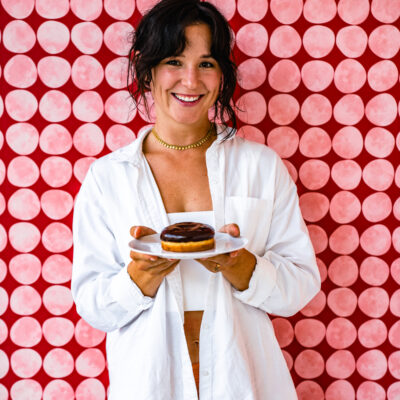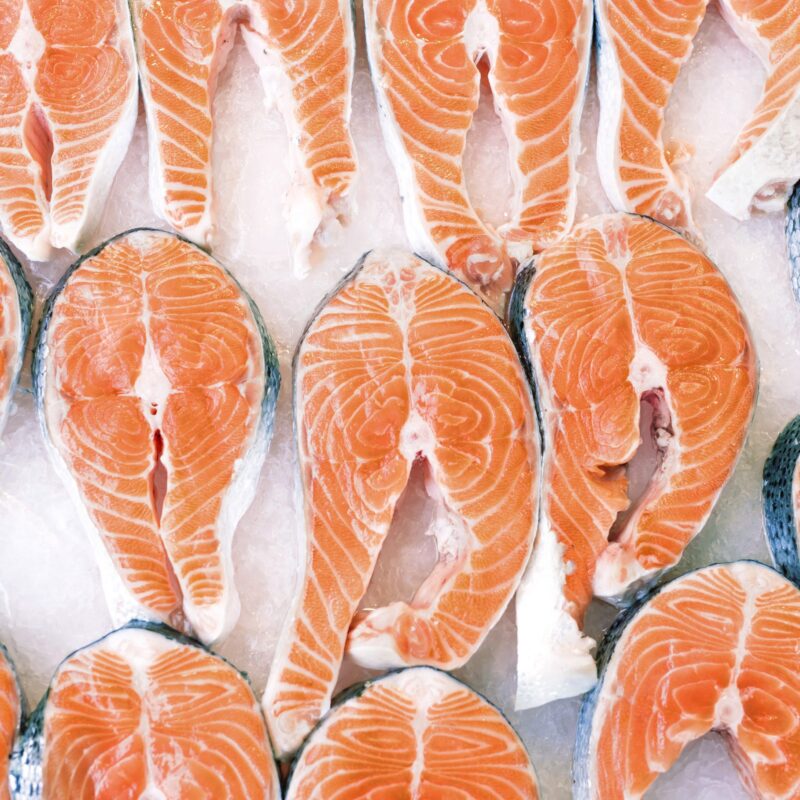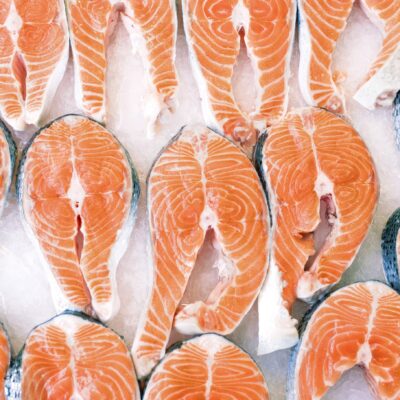On a sunny, blustery day in October, friends and fans of the four-year-old Virginia winery Lightwell Survey gathered in Waynesboro to celebrate the 2017 vintage release. Notably, a clown juggled red balls while swaying on a balance board, keeping the mood light—and slightly off-kilter. The winery’s neighbors in the complex include a concrete-fabrication facility as well as blacksmithing, glass blowing, and ceramics studios. The exposed brick, casement windows, fading green paint, and thick ceiling beams spoke to the site’s history, while the vibrancy of the new tenants generated a palpable sense of creativity and renewal.
Brothers Sebastian and Jay Zutant and winemaker Ben Jordan founded Lightwell in 2015. Jordan holds the same title at Early Mountain Vineyards in Madison County and at Midland Construction, a venture with his brothers Tim and Gray, which produces wine from grapes grown at the family’s farm in Fort Defiance, Virginia. Jay Zutant, a digital whiz who’s worked at StubHub, eBay, and Vivino, added his business acumen to the team as well as financing. Sebastian Zutant’s resume reads like an insider’s list of where to eat in Washington, D.C., with stints at Nectar, Komi, Rasika, The Red Hen, Proof, All Purpose, and now Primrose. But it might be his self-professed love of “goth punk rock” that best explains the aesthetic of Lightwell Survey. “Goodbye Horses,” the winery’s riesling, is named after Zutant’s favorite song—the one that plays in Silence of the Lambs while the killer is putting on makeup.
Jordan met Sebastian Zutant on a wine project for The Red Hen, which Zutant opened in 2014 as a partner and head of the beverage program. The men bonded quickly, in part because of a shared affinity for wines imported by Louis/Dressner Selections, which can be described as “non-interventionalist,” meaning, they seek to express the nature of the land and the grapes with minimal manipulation. Both Jordan and Zutant had come to love these wines in the early ’80s, long before the “natural wines” trend.
Zutant and Jordan agreed to launch Lightwell and jointly set its direction. Jay Zutant tossed in his lot with the visionaries, including the one who hired the clown (not Jordan), and together they began searching for grapes to express their tastes. Jordan describes the philosophy of Lightwell Survey as one that applies a spirit of creativity and curiosity to produce “unusual, delicious, and provocative wines,” per the brand’s website.
Lightwell Survey wines make their first impression with the labels—dark, folksy, sharp-edged illustrations by D.C. artist John DeNapoli. Each wine has its own backstory, and the artist’s interpretation of that story guides the label art. It is intentionally sinister and dramatic (remember, Silence of the Lambs), like a poster for a rock ‘n’ roll gig. The non-traditional branding echoes inside the bottle as well.
Jordan says the Lightwell team is always asking “What if…?” and “Why can’t we…?” They have valued these two questions, and the answers they produce, from the very start of their collaboration. Exhibit A: The 2017 Los Idiots, a blend of 59 percent syrah (red) and 41 percent riesling (white)—unusual, to be sure, but also successful. However, Jordan is also careful to emphasize that respect for established winemaking traditions informs their ethos.
“We’re not just being weird,” he says, underlining his point with an analogy: “You can craft a chair, and it can be highly creative and even look very odd but, in the end, there are certain principles about being a chair. It still has to hold someone up when they sit on it.”
The winemaking approach is self-described as minimalist: no added yeast, low to no added sulfur, and no filtering unless needed for stability in the bottle. The results, he hopes, are “aromatically driven wines with depth of flavor.” Judging by the tasting in Waynesboro, he hits the mark.
Jordan’s work for Early Mountain places him high among the ranks of central Virginia’s “traditional” winemakers, but with Lightwell he is deliberately pressing into scarcely charted territory. One sign of this is the lack of a central vineyard. Jordan seeks grapes planted in cooler climates, at relatively high elevations, or in stony soil. Lightwell eschews the “wine trail model” of large buildings in more populated areas. This enables them to choose fruit suitable to the wine they want to make, obviates a large capital investment, and makes more grapes available in a state where they’re in increasingly short supply. This unencumbered, small-scale model is common among the more established winemaking regions of the world—and perhaps a sign that Virginia’s wine industry is emerging from its infancy and entering a new stage of maturity.
More than once, Jordan reiterates that “we are both looking forward and remembering the past.” Ultimately, one can sense the tension between a reflective respect for what’s come before and an excited curiosity about what’s next. This tension seems to be reflected in the character of the wines, as if what is in the subconscious of the winemaker cannot help but be expressed in the wine. Lightwell Survey is still a very small winery, producing fewer than 1,000 cases a year. But one gets the sense that Jordan and the Zutants would like the business to grow, guided, of course, by the baseline questions “What if…?” and “Why not…?”
Lightwell Survey wines can be purchased online at lightwellsurvey.com
Taste test: A red and a white by Lightwell Survey
2017 Hintermen
72 percent riesling, 28 percent petit manseng; $29.99
This white combines a grape that is relatively rare in Virginia, riesling, with one that holds great promise here, petite manseng. Hinterman has a shy nose that teases with hints of tropical fruit flavors (papaya, mango, pineapple) characteristic of petite manseng. On the palate these flavors are also present and in balance, demonstrating the composition of the wine. The acid of the riesling provides a lift but is balanced by some roundness and texture on the tongue that comes from the petite manseng. The finish lingers like lime hard candy, inviting another sip.
2017 Los Idiots
59 percent syrah, 41 percent riesling; $29.99
The combination of grapes in these proportions is already noteworthy, but Jordan goes a step further by letting them ferment and rest together on the skins (instead of post-fermentation blending). Los Idiots has a penetrating nose of strawberry overlaid with Asian spices (anise, five spice, cardamom). On the palate, violet and rose floral elements emerge, as does a lime-strawberry taste like one of those interesting Jell-o combinations. The finish is complex and elusive. Lemon? Lime? Pineapple? Ultimately, the wine is light and refreshing, with many layers of flavor.
Lightwell Survey wines can be purchased online at lightwellsurvey.com
